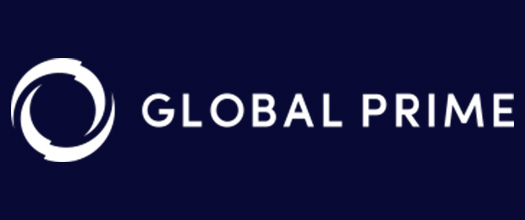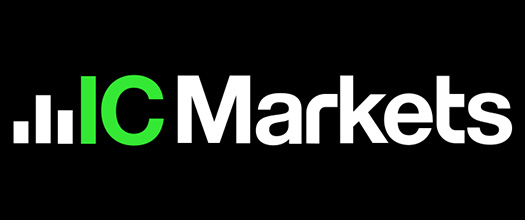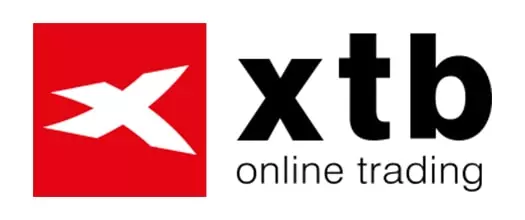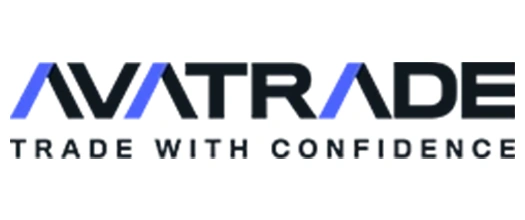- Jump to:
- Main features of the best Argentina Forex brokers
- Forex Brokers in Argentina Compared by Spread
- Account Types and Commissions
- Forex Legislation
- Financial Regulators
- Payment Methods
- Trading Software
- Mobile Trading
- FAQ
Our team of expert traders tested many regulated and trustworthy forex brokers that accept traders from Argentina and compiled a toplist with the best among them. Each broker operating in Argentina received a quality score based on several factors, including Trustpilot rating, regulation, fees and commissions, available trading platforms, customer service and more.
 Fusion Markets74-89% of retail CFD accounts lose money
Fusion Markets74-89% of retail CFD accounts lose money AxiThe vast majority of retail client accounts lose money
AxiThe vast majority of retail client accounts lose money FP Markets73.85% of retail investor accounts lose money
FP Markets73.85% of retail investor accounts lose money Pepperstone75.5% of retail investor accounts lose money
Pepperstone75.5% of retail investor accounts lose money Global Prime74-89% of retail CFD accounts lose money
Global Prime74-89% of retail CFD accounts lose money XM Group72.82% of retail investor accounts lose money
XM Group72.82% of retail investor accounts lose money
Below you can find a comprehensive comparison table of forex brokers for traders in Argenitna. We rank them based on several factors including: regulation, spreads and commissions, Trustpilot rating, trading instruments, trading platforms, deposit and withdrawal methods.
Main features of the best Argentina Forex brokers
- Min Deposit$50Trading InstrumentsCFDs on Indices, Forex, Shares, Crypto, Futures, Commodities, Options, Interest Rates, Sectors, Bonds, Knock-out tradingRegulatorsASIC, FCA, DFSA, CFTC, FMA, FINMA, BaFin, MAS, JFSA, FSCA, BMA (Bermuda)Trading PlatformsMT4, L2 Dealer, ProRealTime, IG proprietary software, TradingViewSpread0.6 pips CFD trading; 0.165 pips DMA tradingLeverage1:30Deposit MethodsVisa, Mastercard, Bank Transfer, Wire Transfer, Visa Electron, Discover, PayPal, Apple Pay, BPAYWithdrawal MethodsVisa, Visa Electron, Mastercard, Discover, Bank Transfer70% of retail client accounts lose money
IG caters to Argentine customers with a website available in Spanish and over 100 tradable forex pairs. Forex options, weekend trading, and extended-hours trading are available as well, albeit with wider spreads. The broker offers forex CFDs with minimum spreads of 0.6 pips for EUR/USD, 0.9 pips for GBP/USD, and 0.7 pips for USD/JPY. Argentine traders can leverage their positions at maximum rates of 1:200 and place forex orders via MT4, L2 Dealer, ProRealTime, and TradingView.
- Min Deposit$0Trading InstrumentsForex, Commodities, Indices, Crypto, US StocksRegulatorsASIC, FSA (Seychelles), VFSC (Vanuatu)Trading PlatformsMetaTrader4, MetaTrader5, cTrader, DupliTrade, Fusion+ Copy Trade, TradingViewSpread0.9 pips Classic; 0.0 pips ZeroLeverage1:30 (1:500 for forex and metals via VFSC)Deposit MethodsVisa, Mastercard, PayPal, Skrill, Neteller, Fasapay, Jeton Wallet, Perfect Money, Online Naira, Doku, Bitcoin, Ethereum, Litecoin, USDT, Tether, Ripple, bank wire, ZotaPay, VNPay, DuitNow, XPay, DragonPay, VAPay, FasaPay, AstroPay, PayID, Jetonbank, Sticpay, Interac, LuqaPay, Zotapay, MiFinityWithdrawal MethodsVisa, Mastercard, Bank Wire, Skrill, Neteller,Bitcoin, Ethereum, Litecoin, Tether, Ripple, MiFinity, Interac, PayPal, AstroPay, Jetonbank, DragonPay74-89% of retail CFD accounts lose money
Fusion Markets accepts Argentine customers with a Vanuatu license, providing them with a choice from over 90 currency pairs. Clients with Zero accounts benefit from competitive EUR/USD spreads that start from 0.0 pips and average 0.03 pips. Zero accounts are subject to a round-turn commission of $4.50 per standard lot. The other option is to open a Standard account where trades incur no commissions but a 0.9-pip markup is added to the raw spreads. Argentine clients can load the website in Spanish. The platform options include MT5, MT4, TradingView, cTrader, and DupliTrade.
- Min Deposit$0Trading InstrumentsForex, Indices, Commodities, Cryptocurrencies, Share CFDs, ETFsRegulatorsUK FCA (No.684312), CySEC (No. 388/20), ASIC (No. 414530), BaFin (No.151148), DFSA, CMA, SCB (Bahamas)Trading PlatformsTradingView, MT5, MT4, cTraderSpreadFrom 0.0 pips (Razor Accounts), 1 pip (Standard Accounts)Leverage1:30Deposit MethodsVisa, Mastercard, PayPal, Bank Transfer, BPay, Neteller, SkrillWithdrawal MethodsVisa, Mastercard, PayPal, Bank Transfer, BPay, Neteller, Skrill75.5% of retail investor accounts lose money
Pepperstone accepts Argentine customers with an SCB license. Clients can choose from 90+ currency pairs, including EUR/USD. Razor and Standard accounts are available. EUR/USD Razor spreads are around 0.0 pips, with round-turn commissions of $6 for MT4, MT5, TradingView, and cTrader. Standard account users pay no commissions but their spreads for EUR/USD are higher (1 pip). Non-deliverable forwards (NDFs) are available for 7 forex pairs. Retail clients can use maximum leverage of 1:200 for forex pairs (1:500 for professional traders) and 1:10 for forex NDFs. The minimum account balance is $200.
- Min Deposit$50 (AU$100)Trading InstrumentsForex CFDs, Shares CFDs, Metals CFDs, Commodities CFDs, Indices CFDs, Crypto CFDs, ETF CFDsRegulatorsASIC, CySEC, FSA (Seychelles), FSCA, FSA (St. Vincent and the Grenadines)Trading PlatformsMetaTrader4, MetaTrader5, WebTrader, IRESS, cTrader, TradingViewSpread1.0 pips Standard; 0.0 pips RawLeverage1:30Deposit MethodsVisa, Mastercard, Neteller, Bank Transfer, Skill, Sticpay, Fasapay, Virtual Pay, Perfect Money, Pagsmile, Dragonpay, Crypto, Apple Pay, Google Pay, Online Banking, Broker to Broker, PayPal, XPay, RapydWithdrawal MethodsVisa, Mastercard, Bank Wire, Neteller, Skrill, Paytrust88, PayPal73.85% of retail investor accounts lose money
The broker offers pre-open price action, low-latency execution, and fair pricing for over 60 currency pairs, enabling EUR/USD traders to place orders with minimum spreads from 0.0 pips (0.1 pip on average) via Raw accounts. Tight spreads couple with a round-turn commission of $6 per lot. Standard accounts scrap commissions but average EUR/USD spreads are higher at 1.2 pips. The cap on maximum leverage is 1:500. The broker is licensed in the Seychelles. Clients can deposit in Argentine pesos with AstroPay, Apple Pay, Google Pay, and PayRetailers.
- Min Deposit$50 or $100 based on country ($10 for the UK)Trading InstrumentsCrypto, CFDs on Forex, Stocks, Commodities, Crypto, ETFs, and IndicesRegulatorsFCA, CySEC, ASIC, MFSA, ADGM, FSA, FINRA/FinCEN, AMF, SEC, GFSCTrading PlatformseToro Investing, eToro App, TradingView, eToro CopyTraderSpread1 pipLeverage1:30Deposit MethodseToro Money, Visa, Mastercard, Neteller, PayPal, Skrill, iDeal, Klarna, Bank Transfer, Trustly, Przelewy24Withdrawal MethodsPayPal, Skrill, Visa, Mastercard, Neteller, Trustly, Bank Transfer51% of retail investor accounts lose money
Renowned for its copy and social trading services, eToro allows Argentine clients to trade 55+ currencies via an intuitive proprietary platform. Spreads for major forex pairs start from 1 pip for USD/JPY and EUR/USD and 2 pips for GBP/USD. The overnight financial charges for EUR/USD amount to $0.00000832 (short) and -$0.00009168 (long). Maximum leverage can reach 1:400 for major pairs and 1:50 for minor and exotic pairs. Minimum deposits from $50. Argentine clients can deposit with cards and several e-wallets but PayPal is unavailable to them.
- Min Deposit$0 ($25 for Trustly, Visa, Mastercard)Trading InstrumentsRegulatorsFCA, CFTC, KNF, MAS, IIROC, MASASIC, FSA (Japan), FSC (British Virgin Islands)Trading PlatformsMT4, TradingView, Oanda WebSpreadFrom 0.6 pips (Standard Account), 0.1 pips (Commision Account)Leverage1:50Deposit MethodsVisa, MasterCard, Credit & Debit Cards, Bank Wire, Skrill, NetellerWithdrawal MethodsVisa, Bank Wire, Credit & Debit Cards, Skrill, Neteller72% of retail CFD accounts lose money
Licensed in the British Virgin Islands, OANDA provides narrow spreads for 48 currency pairs and leverage of up to 1:200. The commission-free account offers minimum spreads from 1 pip for EUR/USD, 1.1 pips for USD/JPY, and 1.2 pips for GBP/USD. Clients can also open core-pricing accounts where spreads for major pairs start from 0.1 pips but nominal fixed commissions are in place. The supported platforms include TradingView, MT5, and OANDA Mobile. Clients from Latin America can deposit straight from their bank accounts, using local bank transfers.
- Min Deposit$200Trading InstrumentsCFDs on Forex, Commodities, Index, Bond, Cryptocurrencies, Stock, FuturesRegulatorsFSA (Seychelles), CySEC, ASICTrading PlatformsMetaTrader4, MetaTrader5, cTrader, ZuluTradeSpread0.8 pips Standard, 0.0 pips Raw AccountsLeverage1:30Deposit MethodsBank transfer, Visa, Mastercard, PayPal, Skrill, Neteller, Visa Direct, SafeCharge, Transact365, eCommPay, CardPay, Bpay, FasaPay, Poli, RapidPay, Klarna, NuveiWithdrawal MethodsBank transfer, Visa, Mastercard, PayPal, Skrill, Neteller, Visa Direct, SafeCharge, Transact365, eCommPay, FasaPay, Poli, RapidPay, Klarna70.64% of retail investor accounts lose money
Argentine traders have access to deep liquidity and 61 forex pairs. Retail customers can open Standard or Raw accounts. Raw spreads are lower, averaging 0.02 pips for EUR/USD but the broker charges round-turn commissions of $7 per lot for MetaTrader or $6 for cTrader. Standard accounts waive the commissions but average EUR/USD spreads increase to 0.82 pips. Both account types require minimum deposits of $200 and offer maximum leverage of 1:1000.
- Min Deposit$250Trading InstrumentsForex, Stocks, Indices, Commodities, ETFs, Indices, CryptocurrenciesRegulatorsFCA (License No. FRN 522157), CySEC (License No.169/12), FSC (FSC License No.: 000302/438), IFSC (License No.: 000302/46.), KNF (N/A), CNMV (N/A), BaFin (registered), FSCA (N/A), FSA Norway (registration ID - FT00118162)Trading PlatformsxStation 5, xStation MobileSpreadFrom 0.1 pips (Pro Account), 0.5 pips (Standard Account)Leverage1:30Deposit MethodsVisa, Maestro, Mastercard, Bank Transfer, Neteller, Skrill, PayPal, Ecommpay, PayUWithdrawal MethodsBank Transfers, Visa, Mastercard, Skrill80% of retail investor accounts lose money
This reputable broker enables Argentine customers to trade 70+ forex CFDs, with the option to short sell. XTB charges minimum spreads of 0.8 pips for EUR/USD trades without charging any commissions. Trading in micro lots is an option for forex novices and customers on a tight budget. The broker accepts deposits with cards, bank transfers, and e-wallets but the latter incur additional processing fees. Customer support is available in Spanish via email, live chat, and phone. XTB is regulated by the authorities of Belize.
- Min Deposit$100Trading InstrumentsForex, Major stock indices, Cryptocurrencies, Commodities, Bonds, Individual Shares, ETFsRegulatorsFFAJ (License No.1574),CySEC (No. 347/17) ISA (No. 514666577), IIROC, ADGM / FSRA (No.190018), CBI (No.C53877), BVIFSC (No. SIBA/L/13/1049), FSCA(No.45984), ASIC (No.406684), JFSA (No. 1662)Trading PlatformsMetaTrader4, MetaTrader5, WebTrader, AvaTadeGO, AvaSocial, AvaOptions, DupliTradeSpreadFrom 0.9 pips (retail), 0.6 pips (pro)Leverage1:30Deposit MethodsVisa, Mastercard, Skrill, WebMoney, Neteller, bank wireWithdrawal MethodsVisa, Mastercard, Skrill, WebMoney, Neteller, bank wire76% of retail investor accounts lose money
This multi-licensed broker offers over 50 currency pairs, including majors like EUR/USD and GBP/USD. All trading costs are built into the spreads, which average 0.9 and 1.3 pips for the two pairs. The broker operates an in-house dealing desk and uses the “market-maker” pricing model. Forex options for EUR/USD tend to have higher spreads of around 7 pips. Traders can boost their forex positions with leverage of 1:400 (0.25% margin). Exotic pairs like USD/TRY and USD/CLP have lower leverage ratios of 1:100 and 1:50.
- Min Deposit$0Trading InstrumentsForex, Cryptocurrencies, Indices, Commodities, BondsRegulatorsASIC (No. 385620), VFSC (No. 40256)Trading PlatformsMT4 Desktop, MT4 Webtrader, MT4 AndroidSpread0.9 pips Standard, 0.0 pips RawLeverage1:500 (1:30 for ASIC entity)Deposit MethodsVisa, Mastercard, PayPal, Skrill, Neteller, Gate8, Dragonpay, Fasapay, VNPay, Pagsmile, BPay, POLi, AstroPay, Bank Transfer, Interac, Perfect Money, PayID, Jeton, MiFinity, XPay, CryptoWithdrawal Methods
Mastercard, Visa, Local Bank Transfer, Bank Wire Transfer, Skrill, Neteller, AstroPay, PayPal, Dragonpay, Perfect Money, Jeton, Interac, Cryptocurrencies
74-89% of retail CFD accounts lose moneyArgentine customers can choose from Standard and Raw accounts at this Vanuatu-regulated broker. Raw accounts give them access to spreads as low as 0.0 pips on forex majors like EUR/USD, with average spread values of 0.6 pips for the pair. Traders with Raw accounts pay a $7 round-turn commission per standard lot. Standard accounts have a 0.9-pip markup on typical raw spreads but allow for commission-free trading. Forex leverage is capped at 1:500, with a 20% margin stop-out level. MT4 is the only supported platform.
Forex Brokers in Argentina Compared by Spread
| Broker | EUR/USD | USD/JPY | GBP/USD | USD/CHF | AUD/USD | EUR/GBP | USD/CAD |
|---|---|---|---|---|---|---|---|
| 1. Fusion Markets | 0.07 | 0.13 | 1.01 | 0.37 | 0.90 | 0.23 | 0.14 |
| 2. Global Prime | 0.13 | 0.28 | 1.11 | 0.34 | 0.07 | 0.28 | 0.26 |
| 3. IC Markets | 0.8 | 0.8 | 0.8 | 0.8 | 0.8 |
| 0.8 |
| 4. IG | 0.85 | 0.9 | 1.40 | 1.95 | 1.01 | 0.9 | 2.1 |
| 5. XTB | 0.9 | 14 | 2.2 | 1.2 | 1.1 | 1.3 | 1.5 |
| 6. AvaTrade | 0.9 | 1.3 | 1.3 | 1.3 | 1.1 | 1.2 | 1.8 |
| 7. eToro | 1.0 | 1.0 | 2.0 | 1.5 | 1 | 1.5 | 1.5 |
| 8. Pepperstone | 1.00 (min) | 1.0 | 1.00 (min) | 1.1 | 1.2 | 1.2 | 1.42 |
| 9. FP Markets | 1.1 | 0.30 | 1.2 | 1.8 | 1.2 | 0.20 | 1.5 |
| 10. Oanda | 1.6 | 1.8 | 2.1 | 1.6 | 1.2 | 1.3 | 1.9 |
Account Types and Commissions
| Broker | Min Deposit | Account Types | Commission per Lot | Trustpilot Rating |
|---|---|---|---|---|
| 1. Fusion Markets | $0 | Zero, Classic, Islamic, Demo, Professional | $0 Classic Account, $4.50 round turn on Zero Account | 4.9 |
| 2. FP Markets | $50 (AU$100) | Standard, Raw, Demo, Professional, Islamic | $0 Standard Account; $6 round turn on Pro Account | 4.7 |
| 3. Pepperstone | $0 | Standard Account, Razor Account | $0 (Standard Account), $7 round-turn (Razor Account) | 4.6 |
| 4. IC Markets | $200 | Raw Spread cTrader, Raw Spread MT, Standard MT | $0 Standard MT; $6 round turn on Raw cTrader; $7 round turn on Raw MT | 4.5 |
| 5. Global Prime | $0 | Standard, Raw, Demo, Professional, Islamic | $0 Standard Accounts; $7 round turn on Raw Accounts | 4.5 |
| 6. AvaTrade | $100 | Retail, Professional, Islamic, MAM | $0 | 4.4 |
| 7. eToro | $50 or $100 based on country ($10 for the UK) | Crypto Wallet, Retail, Professional, Corporate, Demo, Islamic | $0 | 4.2 |
| 8. Oanda | $0 ($25 for Trustly, Visa, Mastercard) | Standard account | $3.50 on Zero Accounts | 4.1 |
| 9. IG | $50 | Spread Betting Account, CFD Trading Account, Limited Risk Account, Islamic, Professional, Demo, Options and Share Dealing Accounts* | $0 | 3.7 |
| 10. XTB | $250 | Standard, Pro, and Islamic Accounts | $0 | 3.7 |
Argentina is one of the largest economies in South America but with inflation of over 50% and multiple recessions in the past decade, it is also among the most unstable economies in the world. Still, investors who want to access the global markets can do that through one of the many offshore Forex brokers available in the country.
Before looking at the brokers in Argentina, however, we should take the local restrictions on Forex trading into account. Until just a few years ago, foreign exchange trading was illegal in the country. Following multiple legislative changes, the government allowed FX trading, giving foreign traders access to the local markets and letting Argentinian investors trade on the largest exchanges in the world.
The opening of the market, however, did not occur without certain restrictions. Traders should also be aware of the current economic situation in Argentina – economic stagnation, high inflation, and a largely pessimistic outlook for the near future. In fact, since the 1950s, the country has spent a third of the time in a recession so the ongoing difficulties are not new. The Argentinian peso continues to fall – in the past 4 years, it plummeted 83.88% versus the USD.
Forex Legislation in Argentina
For many years, the foreign exchange market was practically illegal in Argentina with various restrictions placed on the inflows and outflows of foreign currency. The tight currency controls that were introduced in 2011 were lifted by the federal government that took office in 2015. In fact, this was one of the first economic policies of President Mauricio Macri – the changes his administration undertook allowed Argentines to freely buy and sell foreign currencies.
In 2016, Argentine Central Bank lifted the restrictions on the execution of cross-border derivative transactions. This opened the Forex market in the country to foreign dealers. According to the regulations introduced at that time, all individuals and companies were given the right to freely execute Forex transactions as long as they use the services of financial or foreign exchange entities authorized by the Central Bank of the Argentine Republic. In addition, there were no caps to the traded volumes.
However, in September 2019, the Argentine Executive Power established new regulations regarding some aspects of the Forex market. This was done by means of Urgency and Necessity Decree No. 609/2009 and it introduced new controls on the inflows, outflows, purchase of foreign currency and other transactions. Coming into effect on September 1, the new regulations included rules on the export proceeds (export of goods and services), purchase of foreign currency, foreign currency debts, etc.
According to the changes in the legislative frame, individuals who reside in Argentina need prior authorization by the BCRA (Central Bank of the Argentine Republic or Banco Central de la República Argentina) to access the foreign exchange market. This includes various actions on the Forex market such as creating external assets or granting any kind of guarantees concerning derivatives transactions. This restriction applies to all transactions that exceed US$10,000 a month.
There are no restrictions for Argentina-based individuals to transfer foreign currency from their local foreign-currency-denominated accounts to their own accounts abroad. There is, however, a monthly cap of US$1,000 for non-resident individuals who want to purchase foreign currency. When it comes to legal entities, firms, trusts, mutual funds, etc., prior approval from the BCRA is always required to access the foreign exchange market. BCRA’s authorization is also required in all cases when individuals or legal entities want to purchase foreign currency and pay profits and dividends abroad.
Argentina’s Financial Regulators
There are several authorities that are responsible for the regulation and supervision of the financial sector and the foreign exchange market, in particular. These include Argentina’s Central Bank or BCRA, as well as the Ministry of Economy and Finance. The authority, which regulates Forex, is the National Securities Commission (Comision Nacional de Valores or CNV).
The CNV is the national agency, responsible for the supervision and control of the equity markets in the country. It was created in 1968 and is currently an independent entity under the Ministry of Economy and Finance. The CNV regulates all security transactions and is the main body that issues the rules and regulations regarding equity markets and the Forex.
Forex Payment Methods in Argentina
Until recently, the currency controls that were in place in Argentina meant that many of the popular payment methods used by traders around the world were not available in the country. This included credit cards, online banking, and even digital wallets. However, after many of the restrictions were lifted, traders now have access to a wide variety of banking methods.
This includes internationally accepted credit and debit cards by Visa and Mastercard, as well as locally available prepaid cards and vouchers. Still, regulations regarding Forex and the financial sector as a whole are introduced often by the local regulators in an attempt to address the unstable economy of Argentina. For instance, authorities set a limit for the maximum deposit from bank cards to $50 and as a result, traders could not fund their trading balances using digital wallets such as Neteller, Skrill, or PayPal.
Argentinian investors who want to access the foreign exchange market should also be aware that cards issued by local payment networks cannot be used on the websites of international brokers. For instance, Naranja, which is part of Grupo Financiero Galicia and is among the biggest credit card issuers in Argentina, supports only domestic payments. Many traders use alternative payment methods to top up their online trading accounts and one of these is Mercado Pago. This is an online platform that allows you to make payments and receive money by using emails.
Popular Trading Software in Argentina
Traders in Argentina have access to many of the major Forex brokers from all over the world but the most preferred trading platforms are those available in Spanish. In fact, for most investors, the choice of a broker is much more important than the choice of a platform – after all, the vast majority of online FX brokers offer MetaTrader 4, the most popular trading software in the world.
Argentina is no exception and traders here are familiar with MetaTrader 4. It was introduced nearly 15 years ago but it still is the most widely used trading platform. It is available for free and features a simple design and an exceptionally user-friendly interface suitable even for beginners. MetaTrader 4 or MT4, as it is usually referred to, is a great option for those who want to trade Forex along with other financial instruments, including CFDs, indices, commodities, futures, and cryptocurrencies.
The platform is great for less-experienced traders since it is easy to use and has great functionalities such as copy trading and Expert Advisors. It provides a lot of statistical data, news, and analysis from professionals. In addition, traders gain access to tons of tutorials and educational resources. Advanced traders, on the other hand, can take advantage of MT4’s excellent charting capabilities, its built-in indicators (30 built-in technical indicators and 24 graphic objects), in-depth technical analysis, and the option for automated trading.
Argentinian investors who are interested in trading other markets besides Forex – commodities, stocks, etc., also find MetaTrader 5 a useful alternative. Although the two platforms were created by the same company and are visually similar, they are actually targeting different types of traders. Unlike MT4, MT5 was designed to plug into centralized trading exchanges where stocks and commodities are usually traded.
Mobile Trading in Argentina
Trading today differs significantly from two or three decades ago. Online brokers made Forex, as well as other financial instruments, extremely popular among retail traders. In the past, the global markets could be accessed only by financial institutions, large brokerages, pension funds, and investment banks. Now, everyone can invest in gold, company stocks or foreign currencies as long as they have enough capital and access to the Internet.
The rise of mobile technologies, however, is making FX trading even more accessible. As mobile technologies improve, more investors prefer trading from their mobile phones and tablets. Argentina is, of course, no exception to the rule – Argentinian traders can download and install the mobile apps offered by their preferred brokers. As we have mentioned above, most brokers offer access to the MT4 platform, which is available for iOS and Android devices. The vast majority of trading platforms are also mobile-friendly. However, for fast execution and seamless performance, traders should connect through stable Wi-Fi or 4G.











